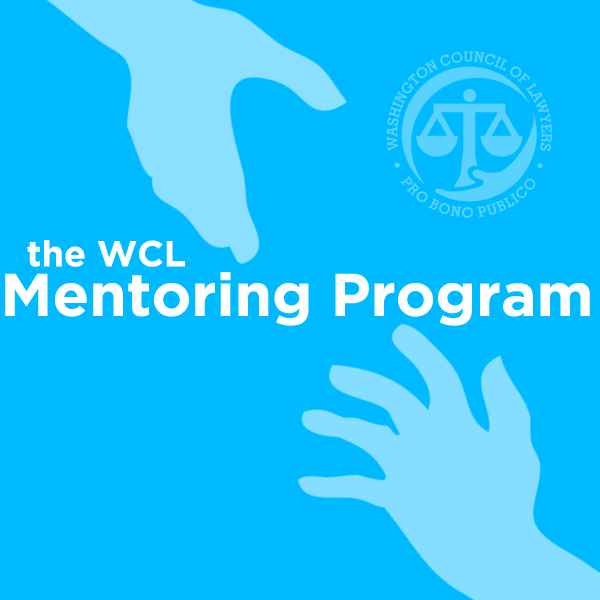Apply for a Legal Job East of the River
30 October 2015 Blog, East River of the River Profiles
We know you are passionate about improving the lives of DC residents, and in particular ensuring that East of the River residents have access to quality legal service and help defending their rights. Here’s a chance to put that passion to work! The Neighborhood Legal Services Program is currently accepting applications for a Staff Attorney to work on housing and community development in the Deanwood neighborhood of Northeast DC. The Staff Attorney will focus primarily on implementing a project to prevent loss of home ownership in Deanwood, including organizing and conducting outreach to residents, particularly those living in deteriorating properties, on common threats to home ownership and protections against loss of equity or ownership; developing strategies to address deteriorating, abandoned, or blighted housing; and developing responses to predatory lending and fraudulent renovation practices that threaten home ownership. Information about the position, including application instructions, can be found here.

We’re Hiring! (Administrative Director, part time)
29 October 2015 Blog | Tags: employment
We are seeking a permanent, part-time Administrative Director to help us further expand our membership and programming. (More…)

Celebrate Pro Bono Week East of the River
21 October 2015 Blog, East River of the River Profiles | Tags: pro bono week
DC Pro Bono Week is here! Among the events taking place from October 25 to 31 is an opportunity to learn more about the Healthy Together program, a medical-legal partnership between the Children’s Law Center and health care facilities in the District. On Thursday, October 29, from 9:30 to 11:00 a.m., visit Unity Health Care‘s Minnesota Ave NE health center to meet with an attorney from Healthy Together and learn about the ways in which attorneys and health providers are coming together to help families gain access to the legal services they need to improve their children’s health outcomes. More information about this site visit, including registration information, is available here.

Meet Our New Board Members! (2015 Edition)
02 October 2015 Blog | Tags: board of directors
We’re delighted to welcome three new lawyers to our Board of Directors: Kyle Fiet, Tanya Senanayake, and Mia Sussman. (More…)

Member Profile: Caroline Fleming
18 September 2015 Blog | Tags: member profiles
1. Tell us a bit about yourself.
My name is Caroline Fleming, and I’ve lived in DC for the better part of the last decade, most of which I’ve spent at the Department of Veterans Affairs as an attorney for the Board of Veterans’ Appeals. Before landing at the Board, I worked straight out of law school as an editor for a legal publication and then—very briefly—as a family lawyer practicing mainly in divorce and custody law. As it turns out, litigation is not my cup of tea! But I do have a knack for research and writing, and fortunately my current position plays to these strengths; I spend my days reviewing claims and drafting decisions for Veterans who are seeking benefits from VA. (More…)

Ward 8 Councilmember LaRuby May
31 August 2015 Blog, East River of the River Profiles | Tags: dc council
By Alex Kurtz After an election so close that it almost automatically generated a recount, in April LaRuby May won the Ward 8 seat on the DC City Council. Although she won by a narrow margin, Councilmember May has continued to garner support even after being sworn in; she encourages constituents’ participation in their community with the goal to “see Ward 8 rise.” Her newsletter, The Rise, first published just a month into her term, keeps Ward 8 informed about her work, providing residents with necessary information to actively participate in their community through community meetings and “pop-up” offices. It also helps them meet their own families’ needs, providing public safety contact information and agency response timeframes. It was her work with children, in part, that led May to law school and to her current position. While working for a nonprofit that served children, and teaching them about the importance of giving back to their communities, May was urged by the children to become a lawyer. Their enthusiasm played an important role in her decision to attend law school at the University of the District of Columbia, where her legal education was influenced by a strong commitment to public service. Since then, she has dedicated herself to serving others. Councilmember May assured the children and families that she serves that her actions would be consistent with her words, and she has strived to honor this commitment since entering office. As an ambassador for Ward 8, she and her colleagues at organizations such as the Neighborhood Legal Services Program have worked closely to ensure that constituents are connected with the legal services they need. When May finds a particular legal need that isn’t covered by the available services in the District, she seeks help from law firms. She also recently co-introduced legislation with Councilmember Brandon Todd that, if approved by her colleagues on the Council, would provide seniors with access to legal clinics. May is also the first Councilmember to introduce Pop-Up Office Hours in Ward 8. Her goal is to connect residents with resources from various government agencies in DC, such as onsite emergency benefits and immunizations so that students can start school on time. May believes that the government shouldn’t always expect people to come to them, and that it should bring services to the people who need them most. Alex Kurtz is a student at Washington College and a former intern at Washington Council of Lawyers.

Know Your Rights! Housing Discrimination Workshop Sept. 22
28 August 2015 Blog, East River of the River Profiles | Tags: housing
The DC Office of Human Rights is sponsoring a Know Your Rights Workshop at the Anacostia Neighborhood Library on Tuesday, September 22, at 7:00 p.m. The workshop will cover fair housing issues, focusing on discrimination against people with vouchers or other subsidies, discrimination against people of color, people with disabilities, and other protected communities. The Anacostia Neighborhood Library is located at 1800 Good Hope Road SE, and can be reached by Metrobus routes 92, V5, W6, and W8. To request a reasonable accommodation or interpretation for the workshop, please contact Teresa Rainey at (202) 727-5343 / teresa.rainey@dc.gov by September 11.

Breaking Barriers to Employment: Jobseeker Legal Clinics at the DC Public Library
21 August 2015 Blog, East River of the River Profiles | Tags: employment
By Daniel Choi In a small room at the Francis Gregory library in Ward 7, a staff attorney from the Neighborhood Legal Services Program is ready for a different kind of legal clinic—one targeting the needs of people trying to get jobs. The librarian makes an announcement over the speaker, and in the course of two short hours, seven people stop by for free one-on-one legal consultations about their criminal records, discrimination, wage theft, credit reports, suspended drivers licenses, and other barriers to employment. NLSP launched Jobseeker Legal Clinics in October 2014 as part of its larger Breaking Barriers to Employment project. An NLSP attorney visits DC Public Library branches across the District, including those, like Francis Gregory, located East of the River. NLSP is hoping to reach low-income and homeless library patrons who are seeking work but whose legal barriers are preventing them from obtaining and keeping stable employment. Since the project began, NLSP has held nearly 60 Jobseeker Legal Clinics and 10 know-your-rights presentations, and has performed over 165 individual legal consultations at various branches of the DC Public Library. Jobseeker Clinics will resume in fall 2015. Why hold clinics at the Library? While the overall economy is improving, this is not true for all residents of Washington, DC. According to December 2014 numbers, Wards 6, 7, and 8 had respective unemployment rates of 6.2 percent, 13 percent, and 16.3 percent; the national unemployment rate was 5.6 percent during the same period. With the transition from paper to electronic job applications, and the high cost of computer and internet access, more and more unemployed DC residents are turning to the Library as a resource for their job application needs. In fact, according to the American Library Association, nearly two-thirds of libraries provide the only free computer and internet access in their communities. Fortunately, DC Public Library is leading a national trend in transforming library spaces from passive information repositories to active social-service centers. With 25 branches around the city, including seven locations East of the River, the DC Public Library is already in communities where help is needed. The Library recently hired a full-time social worker, and many librarians are already systematically assisting patrons with computer skills, cover letters, and resumes. From the legal end, NLSP provides assistance and resources to librarians and patrons alike. With an official partnership in place, NLSP is trying to connect low-income library patrons with legal and social-service organizations throughout the city. NLSP is interested in expanding our partnerships and involving more pro bono attorneys in the library. Ultimately, the goal is to break down barriers to employment—both systemically and one barrier at a time. For more information about NLSP, the Breaking Barriers to Employment Project, or Jobseeker Legal Clinics, please visit www.nlsp.org. For specific questions, please contact Heather Hodges, Pro Bono Counsel, at hhodges@nlsp.org or (202) 269-5119.

Calling All Mentors!
20 August 2015 Blog | Tags: mentoring
By Alexis Applegate & Giovanni Di Maggio
Last year, we had the chance to participate as mentees in the Washington Council of Lawyers Mentoring Program. We both benefitted tremendously from the experience: our mentors helped answer many of our questions and gave us useful advice about legal practice and public interest work in Washington, DC. In addition, the program’s events provided even more tips and perspectives that will help us throughout our legal careers.
We enjoyed the mentoring program so much that we agreed to coordinate it this year. And our first job is to recruit a great class of mentors for the 2015–2016 mentoring year. (More…)






